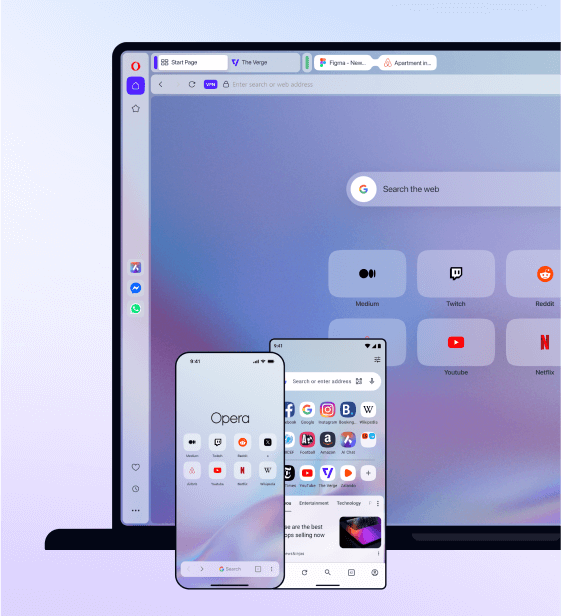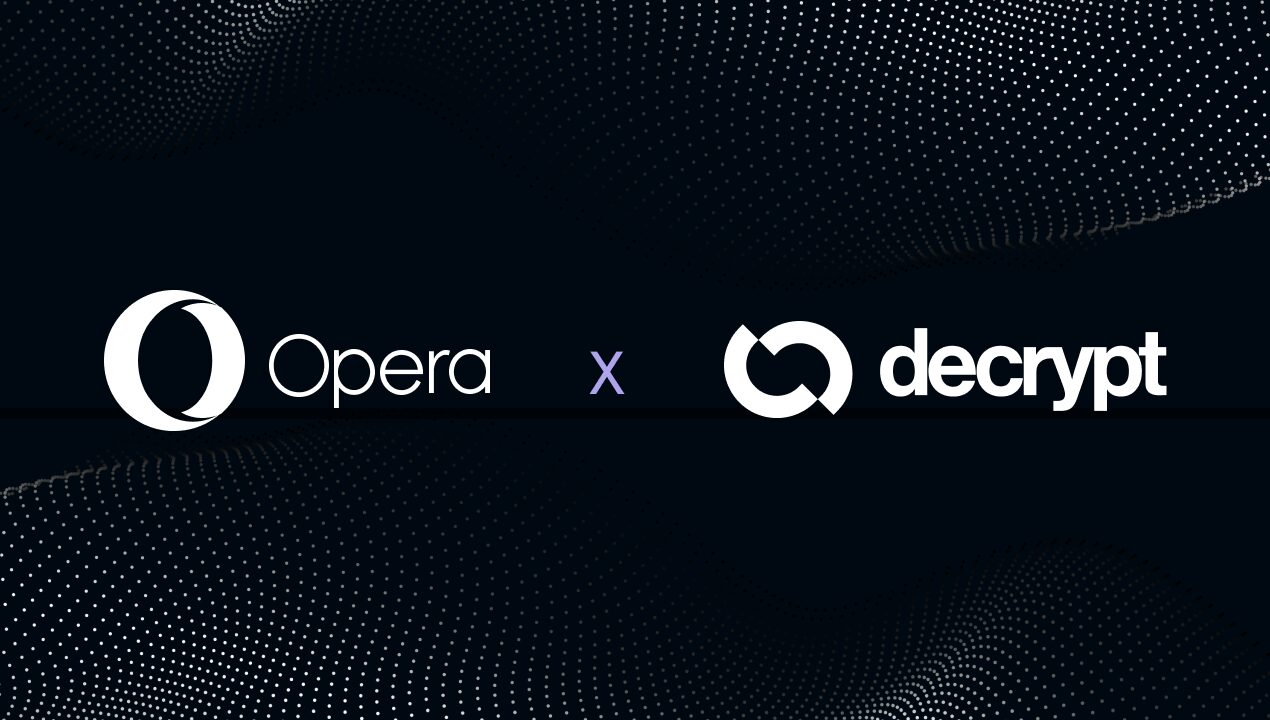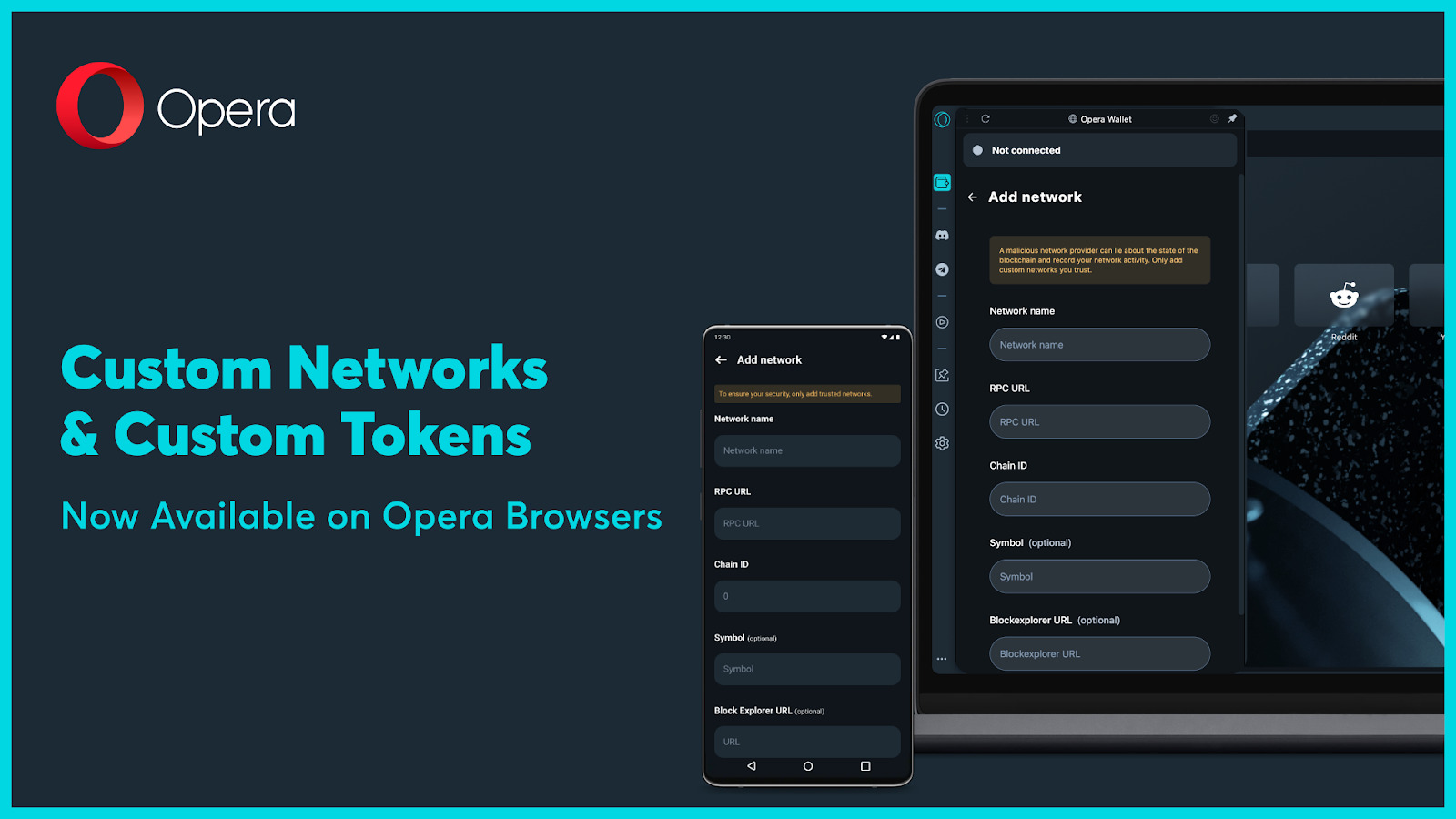Opera launches Web3 Guard to make web browsing safer for crypto users

The suite of new features from the world’s first native Web3 browser helps users guard against suspicious Websites and Dapps, seed phrase phishing attacks, and malicious wallet addresses.
Hi Web3 enthusiasts!
In what has been the most challenging environment for Web3 in years, Opera is making the exploration of Web3 safer than ever with the launch of Web3 Guard – a suite of browser security features designed to bulletproof the browsing experience for Web3 users. These features are available today in the Opera Crypto Browser, vastly improving security for its users.
Crypto has had a particularly tough year with numerous frauds and attacks resulting in record losses for cryptocurrency investors. Serious network hacks and scams have resulted in roughly $4.3 billion in cryptocurrency funds vanishing into thin air in 2022. Recent data from Solidus Labs shows that 15 new crypto scams are observed every hour.
“The current browsers most people use today are not built to handle the complexity of Web3,” said Danny Yao, Senior Product Manager at Opera. “With this release, we make a big leap forward with dedicated security features that enable people to use Web3 applications in a safer way.”
Guarding against malicious Dapps and phishing attacks
You can browse Dapps as easily as accessing any Web2 website with the Opera Crypto Browser. But how do you know if a given Dapp is safe to use? One of the main components of Web3 Guard is Dapp Check, which scans for known security risks associated with decentralized applications (Dapps). This includes checking whether it contains suspicious code, was created by a malicious owner, or if it has been audited. This check will help users assess whether a Dapp has been compromised or has been set up to trick users into trusting it.
Another feature is the Seed Phrase Phishing Check, designed to safeguard users from so-called seed phishing attacks. Phishing attacks often target users’ seed phrases and private keys — some of the most essential parts of any crypto wallet, which can be used to gain full access to a user’s digital assets. Seed phrase phishing attacks are one of the most common ways of compromising Web3 credentials, resulting in losses of millions of dollars.

As part of the checks, Web3 Guard scans web pages for telltale signs of exploit, such as common phishing keywords and properties, without compromising users’ privacy or personal data.
Unlocking the value of Web3
Additional updates to the Crypto Browser include a Malicious Address Checker within the Opera Crypto Wallet that screens recipient addresses against a list of known malicious agents and warns users if suspicious activity is detected. The browser also features the ability to enable HTTPS everywhere, bringing an extra layer of protection and making sure the websites people visit use proper encryption protocols.
Opera Crypto Browser also becomes more secure with the introduction of VPN Pro. Opera’s VPN Pro is a premium alternative to its free browser VPN and is powered by 3,000 servers all around the world. VPN Pro users can secure up to six separate devices and enable full-device protection, keeping their browsing safe from prying eyes.
Support for Binance Connect P2P, MultiversX and Unstoppable Domain handles
In addition, Opera Crypto browser now includes integration of MultiversX and NEAR token support in the Opera Crypto Wallet, support for Binance Connect P2P payments to make crypto more accessible to users in emerging markets, as well support for top-level domains and sending and receiving crypto using Unstoppable Domains.
Web3 Guard and all updates mentioned are now available with the latest version of the Opera Crypto Browser for Desktop. Download it here!














